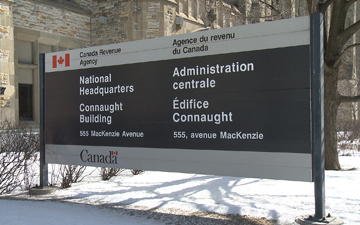What to do when the CRA refuses taxpayer relief

Tax accountant and lawyer David J Rotfleisch explains how a corporate director won relief from the CRA over payroll remittance in Maverick v HMK, 2023
Introduction: The Taxpayer Relief Provisions
 |
David J Rotfleisch, CPA, JD is the founding tax lawyer of Taxpage.com and Rotfleisch & Samulovitch P.C., a Toronto-based boutique tax law corporate law firm. |
Subsection 220(3.1) of the Income Tax Act provides the Canada Revenue Agency with broad discretion to grant taxpayer relief within the 10-year limitation period. Although the Income Tax Act did not specify the criteria for a taxpayer-relief request to be successful, a taxpayer must meet the requirements set out in the CRA's Information Circular 07-1R1 Taxpayer Relief Provisions to be entitled to relief. The most common situations that qualify for relief include three categories: extraordinary circumstances, financial hardship, and actions by the CRA.
The CRA, however, does not have an exhaustive list of criteria for their decision-making process. Instead, the CRA must consider all circumstances presented in a taxpayer-relief request and taxpayers applying for relief are encouraged to send "any information and documents that you feel support your application." The CRA even states on its website that "everything received will be looked at and used in our review."
Yet, often times, taxpayers come across unreasonable CRA decisions denying relief requests with minimal or boiler-plate explanations. Mr. Mike Schnell, the director of Maverick Oilfield Services Ltd. and Latigo Trucking Ltd., is one of those who unfortunately had to fight against unreasonable CRA refusals.
Case Summary: Maverick v HMK
Maverick Oilfield Services Ltd. & Latigo Trucking Ltd. v Attorney General of Canada, 2023 FC 1728, is a consolidated application for judicial review of three CRA review decisions made by two corporations for relief from interest and penalties accrued during their 2014 through 2016 taxations. Mr. Schnell is the director of the two corporations, Maverick Oilfield Services Ltd. and Latigo Trucking Ltd. The knowledgeable Canadian tax lawyers for the two corporations requested taxpayer relief primarily due to mismanagement of their former Chief Executive Officer who caused the corporations to fail to comply with payroll remittance obligations, under section 153 of the Income Tax Act. The basis for the requests includes extraordinary circumstances leading to financial hardship.
Although the CRA split its decisions into three parts, the reasons provided in the decisions were not significantly different, including:
- As there was no fraud involved according to the information CRA has, the owner had the responsibility to ensure that tax obligations of the corporations were fulfilled.
- Despite the history of compliance up to late 2016, when noncompliance lasts for years (from 2016 to 2020), the CRA cannot simply "conclude of extraordinary circumstances."
- Since the former CEO departed in 2018, penalties that were charged due to late or missing remittances for the year 2020 should not be eligible for relief.
The Court called above-noted reasons "troubling", which resulted in the finding that the CRA decisions were unreasonable. Specifically, the CRA failed to address the facts in the record that justifying why Mr. Schnell failed to monitor the corporations' compliance with their remittance obligations, when it is clear that the situation had a significant impact on Mr. Schnell and the corporations. Additionally, the CRA's reasoning is flawed in determining that extraordinary circumstances cannot be found where noncompliance exists for an extended period.
Finally, it was unreasonable for the CRA to fail to consider the long-term impact of the mismanagement of the corporations' finances on subsequent taxation years. The CRA's decision was apparently disconnected from the reality by assuming that once the troublemakers departed, the problem they created would automatically disappear. The Court, consequently, held that it was evident that the consequences of the prior mismanagement did not end immediately with the termination of the former CEO.
Determining whether a CRA decision is reasonable
The standard of review for a CRA's decision on taxpayer-relief requests is reasonableness, which is set out in Vavilov v Canada (Citizenship and Immigration), 2019 SCC 65. The standard was summarized by the Supreme Court of Canada as follows: "The role of this Court is not to determine what is fair, but to determine whether the decision of the Minister's Delegate pursuant to subsection 220(3.1) of the Income Tax Act to refuse taxpayer relief is reasonable as this term is understood in the realm of administrative law. [...] The task of this Court on judicial review is not to determine what is fair in the circumstances but whether the Delegate's decision is reasonable in the legal sense of the standard described above. It covers a broad range of outcomes which may subjectively appear to be unfair."
To learn more about standard of review, you can read our article here: Barrs v The Queen: A Canadian Tax Lawyer's Update On Taxpayer Relief Under S.220(3.1).
Meaningful Considerations
Canadian courts have held that the CRA does not have a free hand to do whatever the CRA wants, act on whim, or unthinkingly rubber-stamp an earlier penalty assessment. The CRA's discretion must be genuinely exercised and must not be fettered or dictated by policy statements such as Information Circular 07-1.
A noteworthy point brought forward by Justice Zinn in Maverick is that, although the CRA did not fetter the discretion, the decisions were nevertheless unreasonable for "failing to meaningfully consider circumstances" that may be outside the taxpayers' control. In other words, the Court acknowledged that the CRA must adhere to "meaningful consideration" when reviewing a taxpayer-relief request. This requirement created a higher standard of proof for the CRA to meet when the CRA is reviewing a taxpayer-relief request.
When the CRA refuses a taxpayer-relief request, a taxpayer can choose to dispute the decision. However, any of the taxpayer's actions to challenge the decision may not have an impact on the CRA collection activities.
Unlike an objection or an appeal to the Tax Court of Canada, the Income Tax Act does stipulate that collection activities must be suspended pending a second-level administrative review or judicial review application of a decision on a taxpayer-relief request.
David J Rotfleisch, CPA, JD is the founding tax lawyer of Taxpage.com and Rotfleisch & Samulovitch P.C., a Toronto-based boutique tax law corporate law firm and is a Certified Specialist in Taxation Law who has completed the CICA in-depth tax planning course. He appears regularly in print, radio and TV and blogs extensively.
With over 30 years of experience as both a lawyer and chartered professional accountant, he has helped start-up businesses, cryptocurrency traders, resident and non-resident business owners and corporations with their tax planning, with will and estate planning, voluntary disclosures and tax dispute resolution including tax audit representation and tax litigation. Visit www.Taxpage.com and email David at david@taxpage.com. Read the original article on Taxpage. Photo David Rotfleisch courtesy Rotfleisch & Samulovitch P.C.









(0) Comments